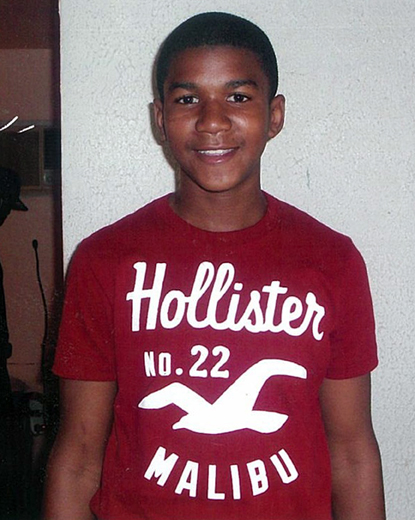In his second issue, appellant argues he was harmed by the additional definition of unlawful because it “violated his right to a unanimous jury,” “lowered the state’s burden of proving each and every element of the offense beyond a reasonable doubt,” and was “confusing, misleading, and … an incorrect statement of Texas law.” The court of criminal appeals has framed the issue as whether the definition was an incorrect statement of the law. Our inquiry is limited accordingly.FN2
FN2. Moreover, appellant provides no argument or authority to support his contention that the instruction violated his right to a unanimous jury. Therefore, it has been waived as inadequately briefed. TEX.R.APP. P. 38.1.
*2 Appellant was charged with retaliation. See TEX. PENAL CODE ANN. § 36.06(a) (West 2011). The statute provides, in pertinent part, that a person commits an offense if he intentionally or knowingly harms or threatens to harm another by an unlawful act in retaliation for or on account of the service or status of another as a person who has reported or who the actor knows intends to report the occurrence of a crime. See id.; see also Moore v. State, 143 S.W.3d 305, 319 (Tex.App.-Waco 2004, pet. ref’d).
 Sherman & Plano, TX Criminal Defense Lawyer Blog
Sherman & Plano, TX Criminal Defense Lawyer Blog



 One of the most prosecuted and least appreciated criminal statutes is aggravated assault with a deadly weapon. Criminal trial lawyers are separated from other lawyers by their ability to win aggravated cases at jury trial. We go into the case knowing our client is likely to do time if the jury believes they committed the offense, particularly if the client has any criminal history. When people think of aggravated assault, or when I do, I think of someone shooting another person in the leg or beating them with a baseball bat, or maybe pointing a gun at someone and threatening their life (without justification, of course.) Aggravated assault normally carries two to twenty years in the penitentiary, the first two of which and, if a four or more year sentence, half of which must be served day for day before parole eligibility, so it is important to know how easily it can be alleged.
One of the most prosecuted and least appreciated criminal statutes is aggravated assault with a deadly weapon. Criminal trial lawyers are separated from other lawyers by their ability to win aggravated cases at jury trial. We go into the case knowing our client is likely to do time if the jury believes they committed the offense, particularly if the client has any criminal history. When people think of aggravated assault, or when I do, I think of someone shooting another person in the leg or beating them with a baseball bat, or maybe pointing a gun at someone and threatening their life (without justification, of course.) Aggravated assault normally carries two to twenty years in the penitentiary, the first two of which and, if a four or more year sentence, half of which must be served day for day before parole eligibility, so it is important to know how easily it can be alleged.
 On a night before the Oregon State Beavers played the University of Texas in the Alamo Bowl, two longhorn players went out drinking. At a bar, they met a young woman who eventually invited them back to her hotel room. That was either a sign that the young lady was interested in a night of romance, or a very bad judgment call by a likely impaired young woman who did not realize what she was doing. Early the next morning, she reported to the San Antonio police that she had been sexually assaulted, and did have bruising on her body. Some say the scenario appears to be an obvious “set up” job on athletes, perhaps another Duke University lacrosse-team episode, while others are outraged that an invitation to one’s hotel room could so easily be taken as a sign of consent.
On a night before the Oregon State Beavers played the University of Texas in the Alamo Bowl, two longhorn players went out drinking. At a bar, they met a young woman who eventually invited them back to her hotel room. That was either a sign that the young lady was interested in a night of romance, or a very bad judgment call by a likely impaired young woman who did not realize what she was doing. Early the next morning, she reported to the San Antonio police that she had been sexually assaulted, and did have bruising on her body. Some say the scenario appears to be an obvious “set up” job on athletes, perhaps another Duke University lacrosse-team episode, while others are outraged that an invitation to one’s hotel room could so easily be taken as a sign of consent. The Texas Rules of Evidence are modeled after the Federal Rules, and Rule 404 is the main rule governing character evidence. 404(a) outlaws evidence of character simply to prove “conformity therewith on a particular occasion,” I.e. you can’t use character evidence to say simply “he did it before, so he must have done it now.” You can’t generally use a person’s history of theft to prove that he committed a theft on a particular occasion, or evidence that he lied before to prove that he lied on a particular occasion. However, under 404(a) a defendant is allowed to offer evidence of his “pertinent character trait.” I.e., Zimmerman could offer into evidence that he is a peaceful person. At that time, he has opened the door to character evidence that he is aggressive or violent and has so acted on prior occasions. 404(a)(2) also specifically allows evidence of the character of the victim in a self-defense case.
The Texas Rules of Evidence are modeled after the Federal Rules, and Rule 404 is the main rule governing character evidence. 404(a) outlaws evidence of character simply to prove “conformity therewith on a particular occasion,” I.e. you can’t use character evidence to say simply “he did it before, so he must have done it now.” You can’t generally use a person’s history of theft to prove that he committed a theft on a particular occasion, or evidence that he lied before to prove that he lied on a particular occasion. However, under 404(a) a defendant is allowed to offer evidence of his “pertinent character trait.” I.e., Zimmerman could offer into evidence that he is a peaceful person. At that time, he has opened the door to character evidence that he is aggressive or violent and has so acted on prior occasions. 404(a)(2) also specifically allows evidence of the character of the victim in a self-defense case. Character evidence is very important in a criminal case. We want the jury to like our client, and to dislike the person accusing us of an alleged crime or the witness to an alleged crime. However, the rules of evidence generally frown on “trial by ambush,” so there are limits to what one can present. In Trayvon Martin’s case, the Zimmerman team wants the deceased’s Facebook, Twitter and school records to show that Martin was the likely aggressor. If so, it becomes more reasonable for Zimmerman to use force, including deadly force, in self-defense.
Character evidence is very important in a criminal case. We want the jury to like our client, and to dislike the person accusing us of an alleged crime or the witness to an alleged crime. However, the rules of evidence generally frown on “trial by ambush,” so there are limits to what one can present. In Trayvon Martin’s case, the Zimmerman team wants the deceased’s Facebook, Twitter and school records to show that Martin was the likely aggressor. If so, it becomes more reasonable for Zimmerman to use force, including deadly force, in self-defense. Trayvon Martin’s parents are wildly screaming that the privacy rights of their 17 year old “kid” are being invaded by George Zimmerman’s lawyers acquiring Trayvon’s Facebook, Twitter and school records. First of all, what you post on Facebook or Twitter in public has little privacy value. So, be careful what you say on public message boards. Next, school records are private records, but are a gold mine source for criminal defense lawyers and prosecutors researching criminal defendants and criminal witnesses. Defense lawyers in Texas can easily subpoena school records and turn them over to the Court. So can prosecutors, who usually look through a defendant’s school records for evidence of “bad acts” to use against them in punishment hearings.
Trayvon Martin’s parents are wildly screaming that the privacy rights of their 17 year old “kid” are being invaded by George Zimmerman’s lawyers acquiring Trayvon’s Facebook, Twitter and school records. First of all, what you post on Facebook or Twitter in public has little privacy value. So, be careful what you say on public message boards. Next, school records are private records, but are a gold mine source for criminal defense lawyers and prosecutors researching criminal defendants and criminal witnesses. Defense lawyers in Texas can easily subpoena school records and turn them over to the Court. So can prosecutors, who usually look through a defendant’s school records for evidence of “bad acts” to use against them in punishment hearings.